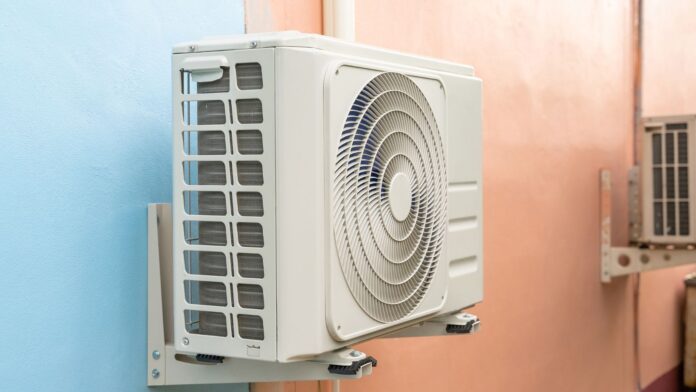Keeping a comfortable interior environment is essential, especially during hot weather. An unexpected air conditioning (AC) failure can be disruptive and uncomfortable. Being prepared for such emergencies can save time, money, and stress.
During these unexpected emergencies, the swift response of an emergency air conditioning service can be crucial in restoring comfort and avoiding further damage to the system. This guide provides essential tips for handling unexpected AC failures effectively.
Understanding Common AC Issues
Understanding common problems helps identify issues early. They include refrigerant leaks, frozen coils, electrical control failures, and sensor problems. Refrigerant leakage might lead to the system losing its cooling capacity, leading to inefficiency and eventual breakdown. Frozen coils often indicate issues with airflow, which dirty filters or blocked ducts can cause. Electrical control failure is common in systems that frequently turn on and off, leading to worn-out components.
Regular Maintenance is Key
Regular maintenance is crucial in preventing unexpected AC failures. Scheduling annual or bi-annual maintenance checks with a professional technician ensures the system is running efficiently.

These checks typically include cleaning coils, checking refrigerant levels, inspecting electrical components, and calibrating the thermostat. Additionally, professional technicians can identify and address minor issues before they become major problems, extending the lifespan of the AC unit.
Keep Filters Clean
Dirty or clogged filters can lead to AC failures by restricting airflow and reducing efficiency. It is highly suggested that filters be replaced or cleaned once every one to three months, depending on usage and the type of filter. Keeping filters clean not only extends the life of the AC unit but also improves indoor air quality. Poor indoor air quality might worsen allergies and respiratory issues, making it important to maintain clean filters. High-efficiency particulate air (HEPA) filters, in particular, can trap smaller particles and improve air quality significantly.
Inspect the Thermostat
A malfunctioning thermostat can cause the conditioning system to stop working correctly. Regularly check the thermostat settings and make sure they are functioning properly. Upgrade to a programmable thermostat for increased efficiency and control. Programmable thermostats allow for precise temperature adjustments throughout the day, optimizing energy use and comfort. Smart thermostats go a step further, understanding household patterns and adjusting settings automatically.
Ensure Proper Ventilation
Proper ventilation is required to ensure that the air conditioning system runs smoothly. Blocked or closed vents can lead to system strain and eventual failure. Regularly inspect and clean vents to ensure unobstructed airflow throughout the home or office. In addition to keeping vents clear, ensuring that the ductwork is properly sealed and insulated can prevent energy loss and improve system efficiency. Poor ventilation can also lead to humidity issues, which can affect comfort and air quality. Installing and maintaining exhaust fans in areas like kitchens and bathrooms can further enhance ventilation and support the AC system.
Know When to Call for Emergency Service
Recognizing when to call for emergency AC service is crucial. Situations warranting immediate attention include the system not turning on, unusual noises, strange odors, or visible damage.

Timely intervention by a professional can prevent further damage and restore comfort quickly. In some cases, ignoring these signs can lead to more extensive and costly repairs. Unusual noises may indicate loose or damaged components, while strange odors could suggest electrical issues or mold growth. Visible damage, such as leaks or broken parts, requires immediate attention to prevent further deterioration.
Choosing a Reliable Emergency AC Service Provider
Selecting a reliable emergency air conditioning service provider ensures prompt and efficient repair services. Look for providers with positive feedbacks, appropriate certifications, and 24/7 availability. Having a trusted provider can offer peace of mind and quick resolution during emergencies. Checking for industry certifications, such as those from NATE (North American Technician Excellence), can indicate higher expertise and professionalism. Choose a trustworthy service provider with the help of referrals from friends and relatives, as well as by reading customer feedbacks.
Preventative Measures to Avoid Future Failures
Preventative steps can greatly reduce the likelihood of unexpected AC breakdowns. These measures include regular inspections, timely maintenance, upgrading old systems, and educating household members on proper usage. Investing in these steps can enhance the longevity and efficiency of the system. Regularly inspecting components such as coils, fins, and refrigerant lines can help identify potential issues before they escalate. Upgrading to more energy-efficient systems and components can also reduce the risk of failures and lower energy costs. Educating household members on proper thermostat settings, filter maintenance, and system operation can further support the AC system’s performance. Preventative measures are a proactive approach to ensuring a reliable and efficient cooling system.
Being prepared for unexpected AC failures involves understanding common issues, performing regular maintenance, and knowing when to call for professional help. By following these emergency air conditioning service tips, one can ensure a comfortable and stress-free indoor environment. Prioritizing preventative measures and maintaining a reliable emergency service provider’s contact information can make all the difference in handling AC emergencies effectively.


